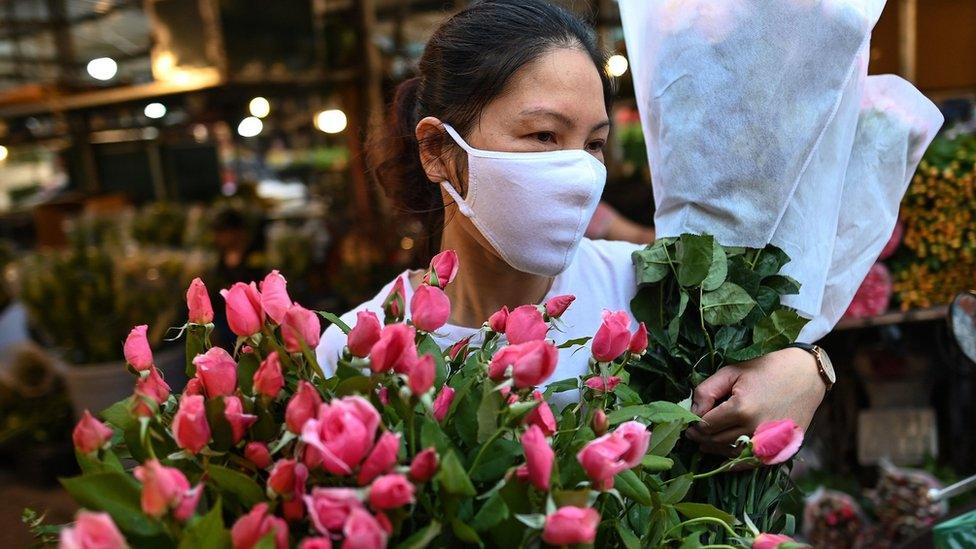Coronavirus: Pilot returning home after two months on life support in Vietnam
- Published
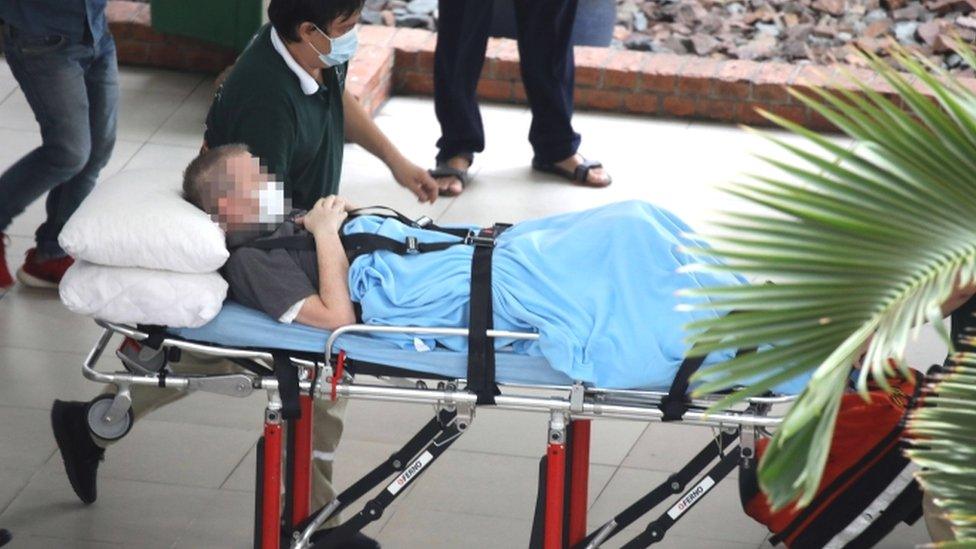
Stephen Cameron was released from hospital this weekend
A Scottish pilot who spent more than two months on life support in Vietnam after contracting Covid-19 is finally returning home after being released from hospital.
Stephen Cameron, 42, from Motherwell, was said to have been the sickest patient local doctors had to treat during the outbreak.
He spent nearly four months in hospitals in Ho Chi Minh City.
A grateful Mr Cameron said: "The odds say that I shouldn't be here."
So rare was a case of his severity in Vietnam, his recovery was reported in national newspapers and on television bulletins in detail.
The Vietnam Airlines pilot became known nationwide as 'Patient 91', the moniker given to him by public health officials when he fell ill in March.
As he finally left hospital, Mr Cameron said: "I'm overwhelmed by the generosity of the Vietnamese people, the dedication and professionalism of the doctors and nurses.
"I can only thank everybody here for what they've done.
"I go home with a happy heart because I'm going home but a sad one because I'm leaving so many people here that I've made friends with."
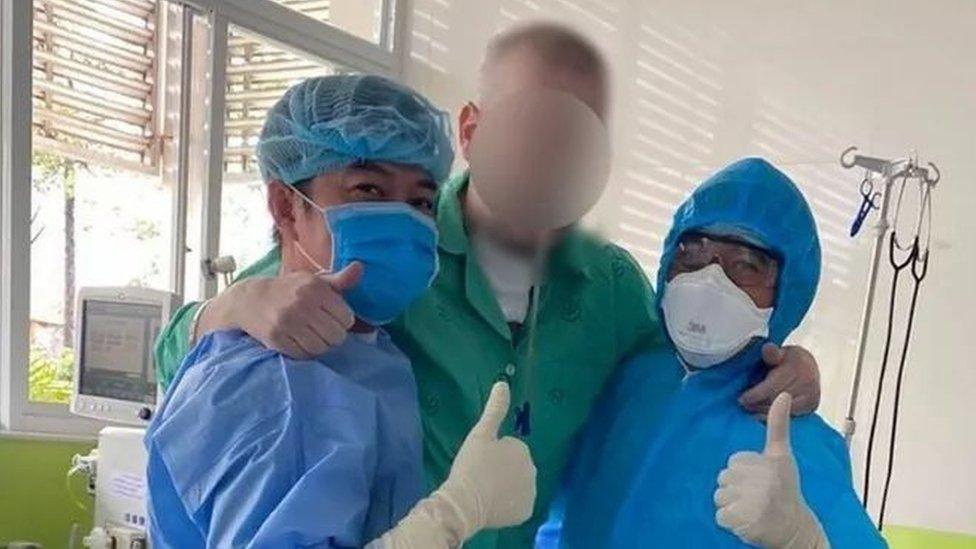
The 42-year-old Scot has been undergoing intensive rehab
Just a few weeks after arriving in Vietnam in early February for a new role with the national carrier, he had spent an evening at the popular Buddha Bar in Ho Chi Minh City.
He tested positive days later, on 18 March, for Covid-19.
His condition got worse very quickly.
For much of his two-and-a-half months in a medically induced coma he depended on an Ecmo machine, a form of life support only used in the most extreme cases, to survive.
'Multiple complications'
The machines extract blood from a patient's body and infuse it with oxygen, before pumping it back in.
Doctors had to contend with multiple complications. His blood became extremely sticky, leading to clots.
His kidneys failed, meaning they required dialysis and his lung capacity plummeted to 10%.
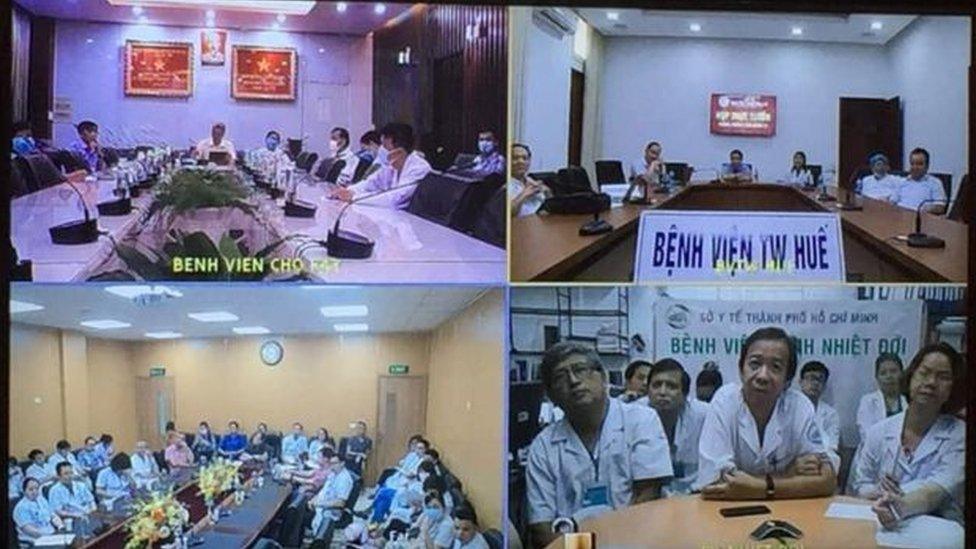
Doctors from hospitals across Vietnam discussed Patient 91's condition
Dozens of Vietnam's intensive care specialists held regular conference calls to discuss his condition.
After waking at the end of May, there were small signs of improvement - a thumbs-up sign for a doctor, and holding a Motherwell Football Club scarf aloft.
Every step towards recovery made headlines.
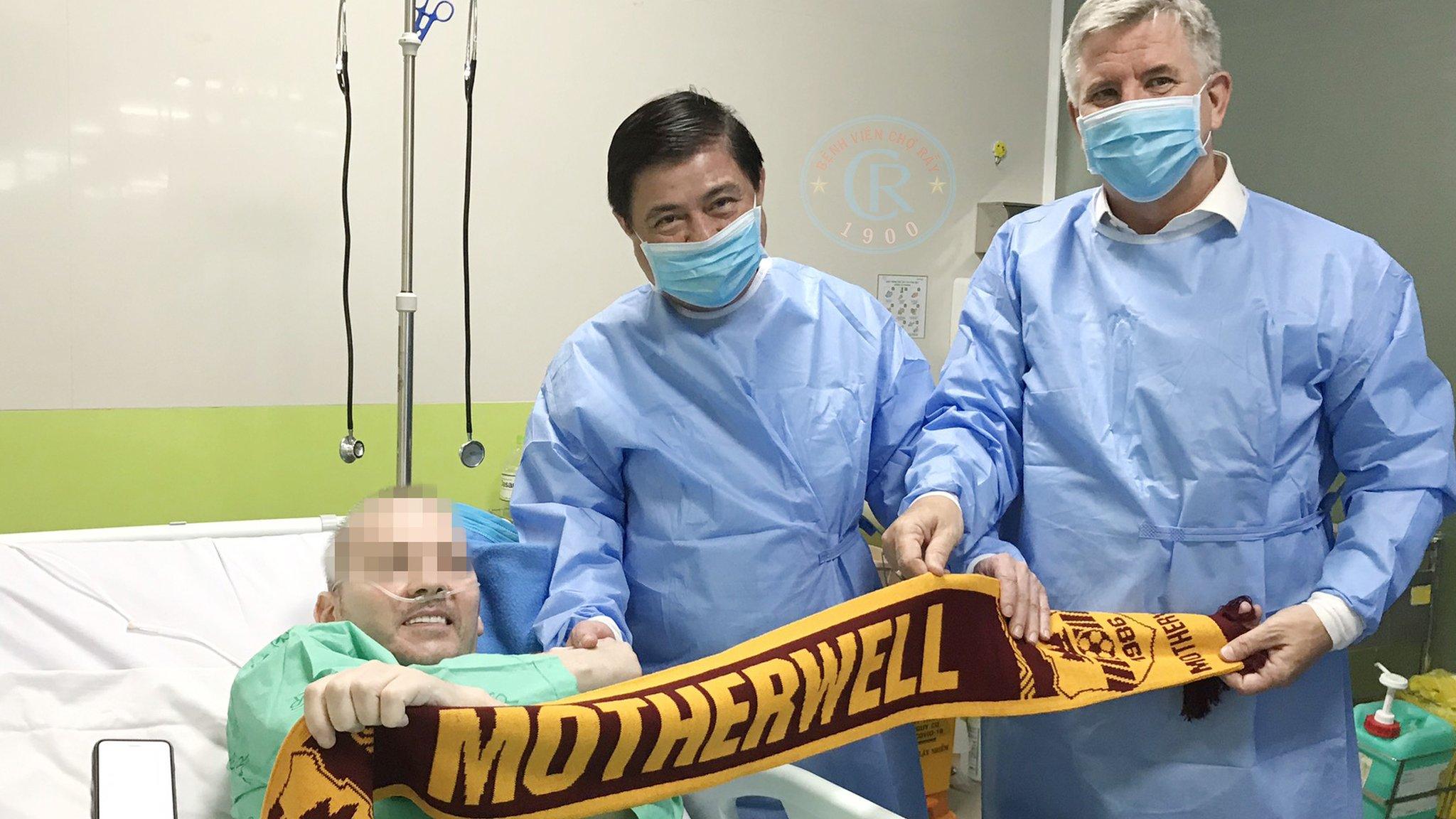
Stephen Cameron with the British consul general Ian Gibbons and the chairman of Ho Chi Minh City's People's Committee Nguyen Thanh Phong
He lost 20kg (3.1 stone) and his muscles were weak.
Tran Thanh Linh, deputy head of ICU at Cho Ray Hospital, said "huge effort and energy" had gone into saving Mr Cameron.
'Not on their watch'
He said he was given the country's best equipment and the case had captured the attention of everyone.
Mr Cameron had earlier explained of his gratitude for his treatment: "If I'd been almost anywhere else on the planet, I'd be dead.
"I'm very humbled by how I've been taken into the hearts of the Vietnamese people.
"And most of all I'm grateful for the bloody-mindedness of the doctors in not wanting me to die on their watch."
- Published27 June 2020
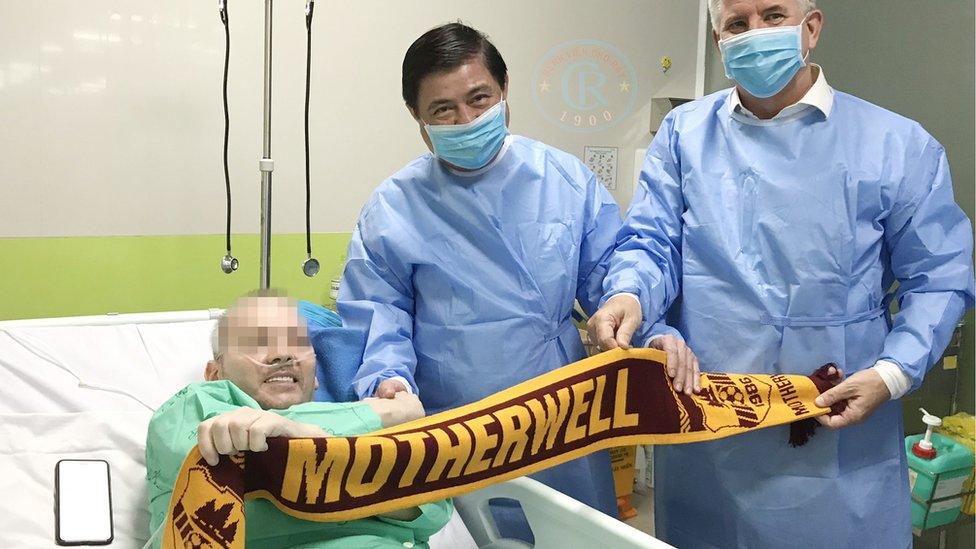
- Published15 May 2020
